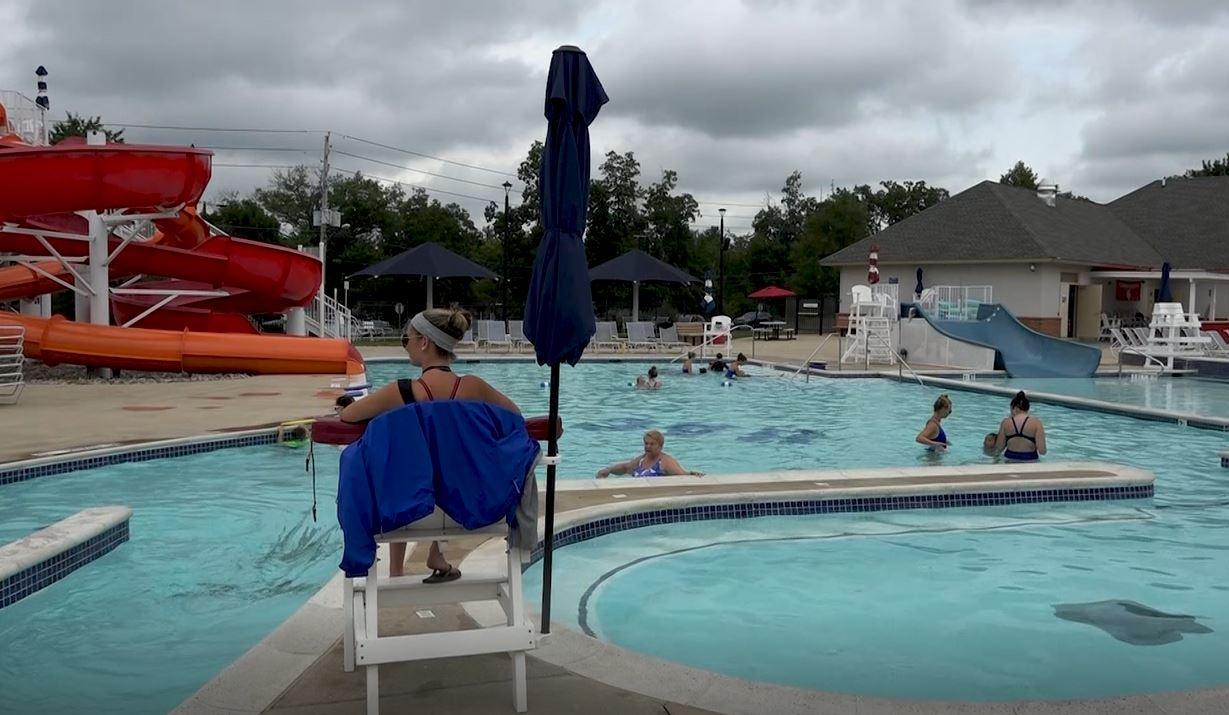HATFIELD, Pa. (WLVT) - Federal public health officials are urging people to practice “swimmer hygiene” in response to increasing outbreaks caused by water-borne parasite
Cryptosporidium, also known as “Crypto.”
A
CDC report last week detailed outbreaks of cryptosporidiosis in the U.S., which have increased an average of 13 percent each year from 2009 to 2017, with nearly 450 outbreaks in that period. Symptoms of cryptosporidiosis include abdominal pain, vomiting and diarrhea. The parasite
Cryptosporidium can survive days in contaminated water if not treated properly.
“That is typically a big concern of mine,” said Noelle Plajer, a Hatfield Sharks swim team parent.
“It’s disgusting,” said Erin Allen, another Hatfield Sharks swim team parent.
There are steps you can take to protect yourself and help keep the pool clean for everyone. They start with making sure you’re clean before you get into the water.
“It is not ok to use the pool as your bath,” said Dr. Rita Ramos, a pediatrician at Abington-Jefferson Health.
Despite a recent report that more than half (51 percent) of Americans
reported using a swimming pool as a communal bathtub, experts say it’s not a good idea.
“You do want to shower before going into the pool because not only dirt is on your body but sweat,” Ramos said.
It’s also not ok to use the pool as your bathroom, Ramos added. In another alarming study, 17 percent of people
admitted to peeing in the pool. But urine combining with chlorine can produce the dangerous chemical trichloramine.
“It can cause asthma in swimmers and is what makes your eyes red when you’re in the pool,” Ramos said.
Experts also advise against drinking pool water.
At
Hatfield Aquatic Center, flyers in the changing rooms remind people to use good swimmer hygiene.
“We encourage you to shower before you enter the water,” said Michael Krewson, the center’s operations supervisor. “We also encourage you to take frequent bathroom breaks, especially if you have a younger child.”
Clean bathrooms help encourage people to use them, pool users said.
“They do a really good job of cleaning the bathrooms,” Allen said. “I think people are more willing to use clean bathrooms so I think that prevents peeing in the pool.”
But mistakes happen, so the aquatic center regularly tests its pools’ water for chlorine levels and pH balance.
Krewson demonstrated how they perform the tests.
“I’m coming out to test the water. We do it on the hour. What I’m going to do first is do the chlorine test.,” he said, dipping a cup into the pool. He mixed the water and some chemicals in a separate vial and shook it. “You want to see a pink color. If you don’t see any pink color it means there’s no chlorine in your water.”
Krewson held the vial up to the sun and assessed the color.
“Our chlorine level in our leisure pool right now is at a 2.8, so we know we’re good,” he said.
The CDC
recommends pools have 2 to 3 parts per million of chlorine in the water.
“I feel as if the chlorine that’s in this pool actually helps protect them if there is urine in the pool, because that’s something you can’t control,” Plajer said.
Hatfield Aquatic Center also has emergency procedures if someone does poop in the pool to prevent the spread of bacteria and parasites like Crypto.
“We have to shut the pool down for 12 ¾ hours,” Krewson said. “It has to run at a minimum of 20 parts per million of chlorine in the water.”
Experts say to stay aware of the risks and practice good swimmer hygiene, but don’t let fear keep you from getting in the water. With all these precautions, it’s far less likely you’ll get sick from swimming in a pool.




